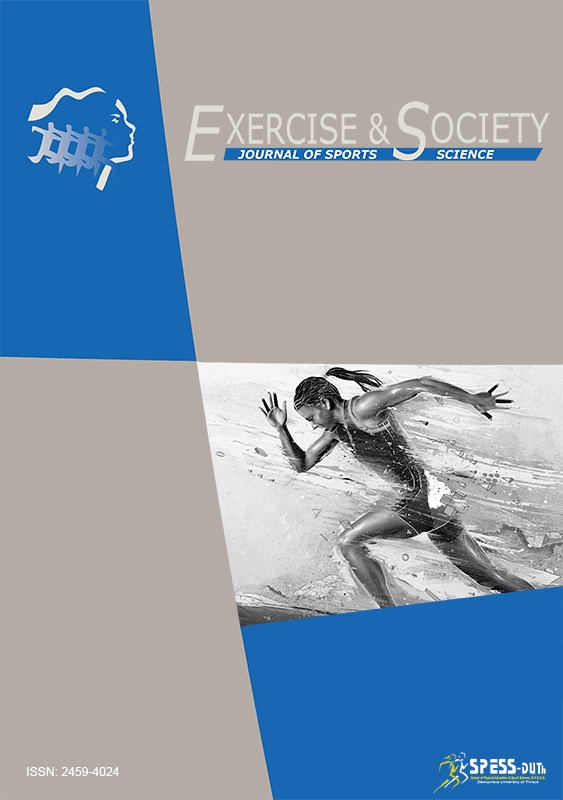The influence of self-regulated feedback on performance and learning the service skill of novice female volleyball players.
Abstract
The purpose of the present research was to study the effect of self-control feedback on the acquisition and learning of the volleyball spin service skill in novice female players. Twenty-eight (28) novice female athletes aged 10-11 years old and with a 2- year training experience participated in this research. The female athletes were randomly divided into two groups, the experimental (n = 14, age Μ = 11, SD = 0,391) and the control group (n = 14, age Μ = 10.93, SD = 0,475). The athletes of both groups followed a 5-week training program with two units per week, which included exercises for the learning of the skill. The athletes of the experimental group were able to receive feedback whenever they wished, while the control group followed the program for learning the skill, taking feedback (knowledge of performance), whenever it was considered necessary by the coach. The results showed that there were statistically significant differences between the two groups in learning the skill. Specifically, the experimental group was better at all the basic elements of the service skill, except of the throw of the ball, which apparently is due to lack of coordination of athletes at this age. It is suggested that coaches can use the self-regulating feedback, for better performance and learning and to develop athletes’ internal cognitive processes.Downloads
Published
How to Cite
Issue
Section
License
Authors who publish with this journal agree to the following terms:
a. Authors retain copyright and grant the journal right of first publication with the work simultaneously licensed under a Creative Commons Attribution License that allows others to share the work with an acknowledgement of the work's authorship and initial publication in this journal.
b. Authors are able to enter into separate, additional contractual arrangements for the non-exclusive distribution of the journal's published version of the work (e.g., post it to an institutional repository or publish it in a book), with an acknowledgement of its initial publication in this journal.
c. Authors are permitted and encouraged to post their work online (e.g., in institutional repositories or on their website) prior to and during the submission process, as it can lead to productive exchanges, as well as earlier and greater citation of published work (See The Effect of Open Access).


